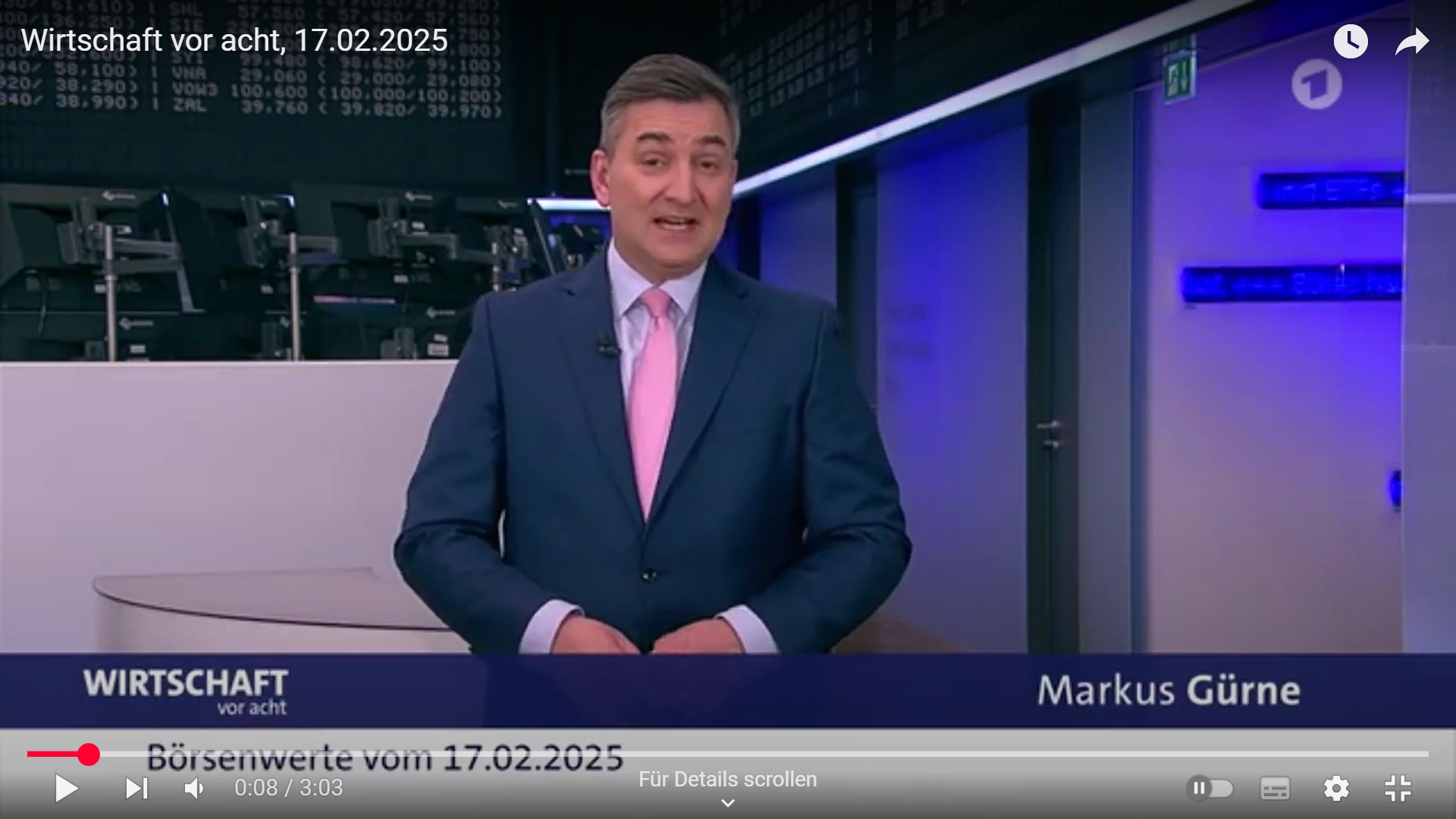In the unintended part one of the short presentation of the business magazine programme of the First German Television, the question was how and where can growth for the economy come from. The pension situation was discussed.
In part two, the following video poses the same question with other players shaping the economy.
How can a positive mood for growth be created?
Experts are of the opinion that taxes should be lowered for companies. Low taxes make a location more attractive, which is important in the competition between countries. Companies in Germany have invested less since 2018, while companies in other countries are investing more.
But if companies pay less tax, how does the state get more money?
The lowest denominator remains purchasing power. If people consume, spend their income on consumption, then growth occurs, as the short video makes clear.
As Markus Grüne says here, how we behave as consumers depends on how we vote, what laws, restrictions and opportunities the state offers.
This relationship then forms the positive or negative sentiment.
Wirtschaft vor Acht 19.02.2025 (Börsenwerte nicht aktuell)
At the end of a zeitgeist towards the economy, national economy and our history…
How we humans, consumers, behave is strongly influenced by legislation and policy-making. In economic models, purchasing power is offset by saving. In the simplest case, the money that is not spent on consumption is used for saving. In the other case, the entire income is available for consumption after deductions, based on model calculations.
Which party is not only closest to the truth with its election promises, but also represents a forward-looking attitude towards the global economic challenge of our time, our zeitgeist.
The focus is on retreat, in the form celebrated by populists, or expansion.
The next stage of expansion lies in the more intensive networking of the world. The markets are open. Trade agreements between states and continents facilitate or hinder interstate trade relations. Tariffs are an instrument for creating or dismantling barriers.
Ultimately, however, moral and financial advantages and disadvantages decide which states enter into which relationships with each other and how.
We can refer here to the achievement of the English economist Davod Ricardo and his comparative cost theorem:
The theory of comparative cost advantage states that trade between two parties is worthwhile as soon as they produce their goods at different costs. Ricardo proved that the international division of labour promotes the welfare of the economies involved in trade. He thus justified the advantages of specialising in the product with the lowest opportunity costs.
Until the 2000s, much was still reserved for evolutionary processes. At some point, however, it will be about networking the world, our thoughts, which, with regard to social media, began its campaign sometime in the early 1970s. That’s when the telecoms companies really got going, on the basis of which the internet and ultimately the smallest mobile devices were developed, which decoupled the place where we live from the need to live there.
In the past, you had to cultivate the land, which meant you had to have solid ground, sedentarisation began, and with it the patriarchal form of rule.
We now live in vertical farming and can artificially fertilise products, and have thus become independent of sedentariness. The conditions have changed and with the age of artificial intelligence we are facing a radical innovation, as I can see from Ottmar M. E. Schreiner’s assessment (2005).
We are currently globally networked thanks to split-second messages, location is only necessary to a limited extent and, according to psychology, there are two points of view.
Either we stay where we are, a place where we seem to feel safe and secure, which we would like to call home, or we move away from this position in a blustery, eruptive manner and return again and again. A back and forth does not have to refer to locations alone. It can also mean distancing ourselves from traditional, conservative values and at some point coming back and reflecting on the original values.
What moves people, what the majority of them want in the spirit of the times, is decided and then erupts in wars, conflicts and crises. Some are exuberant to this day, while others are perhaps hiding. Ultimately, I believe that the description by the philosopher of the century Hannah Arendt is the most accurate here – wars, conflicts, discord and crises are the midwife of morality, philosophy and desirable ways of life.
What will come is what will prevail. Some feel accompanied by signs and wonders, while others are calling for civil courage. I am convinced that the present time corresponds to the description and analysis of the economic philosopher Anders Indset, who described how things will turn out in his bestseller ‘Quantum Economy’. With the disappearance of colonialism, every nation has the opportunity to become a sufficiently suitable supplier of products to dominant states. The market becomes more diverse, human needs shift and relocate. Under these conditions, the world market becomes so robust that states such as the USA or Russia do not have enough power to want to establish the interests currently as they once were, divided into East and West, what our political fathers and mothers fought for over decades, state sovereignty and an end to the Cold War.
The current attempt by the USA and Russia to rebuild the walls will only prove, I believe, that this no longer works and thus strengthen state sovereignty and the robustness of the global economy.


